
Table of Contents
Key Highlights
- Do you want to find hidden keywords on any website and improve your SEO? You are in the right place.
We will explore six strong methods. These include using advanced keyword research tools and getting tips from online communities.
- Get ready to learn about competitor analysis, use Google’s tools, and discover valuable keywords that will boost your website’s rank.
- Whether you are an SEO expert or just starting, these methods will help you understand user intent, enhance your website content, and succeed in search engine results.
- Let’s get started!
Introduction
In today’s digital world, having a strong online presence is very important for success. This begins with keyword research, which is key for any good SEO strategy aimed at improving your website’s visibility.
By knowing the words your target audience uses, you can adjust your website content to meet their needs. This helps you rank higher in search engine results.
Understanding the Importance of Keyword Discovery
When you use Google Search results to find something, what do you key in? You enter keywords!
These words help you find the information you want. Good search engine optimization is knowing how this works.
User intent is very important. You need to find the keywords people use when they search for information related to your website. It’s not just any keywords.
These keywords should match the type of content your audience truly wants. Understanding user intent is the first step in creating a strong content strategy.
This helps you focus your work to attract the right visitors and reach your online goals.
1. The Role of Keywords in SEO and Content Strategy
Keywords help direct your content plan and organic search efforts. It’s important to use the right keywords that attract both users and search engines.
You should include these keywords in various areas of your web page, such as page titles and meta descriptions. This practice can improve visibility and enhance your ranking.
Using SEO tools for keyword research helps you learn the words your target audience uses.
When people search for information, your website will rank higher in search engine results. This can result in more visitors and conversions.
2. Keywords Impact Your Website’s Visibility and Traffic
A well-designed website is not useful if no one sees it in search results. That is why relevant keywords matter. They guide users to your content.
When you use these keywords wisely, your website will become more visible. This means you can attract more visitors. If your content fits what people want, search engines will view your website as important and trustworthy.
Therefore, this can bring better rankings and help more people discover your site.
Method 1: Leveraging Keyword Research Tools
The digital age has provided us with excellent tools for keyword research. These tools come in various types and features.
This makes them good for both beginners and advanced users. Let’s explore some popular options that can offer us useful information about keyword opportunities.
1. Utilizing Google Keyword Planner for Initial Insights
Google Keyword Planner is a free tool offered by Google Ads. It is a good starting point for keyword research. This tool helps you find new keyword ideas related to your website or certain products. It also provides information about search volume and competition.
You can add your website or a list of important keyword phrases. After that, the Keyword Planner will provide many related terms.
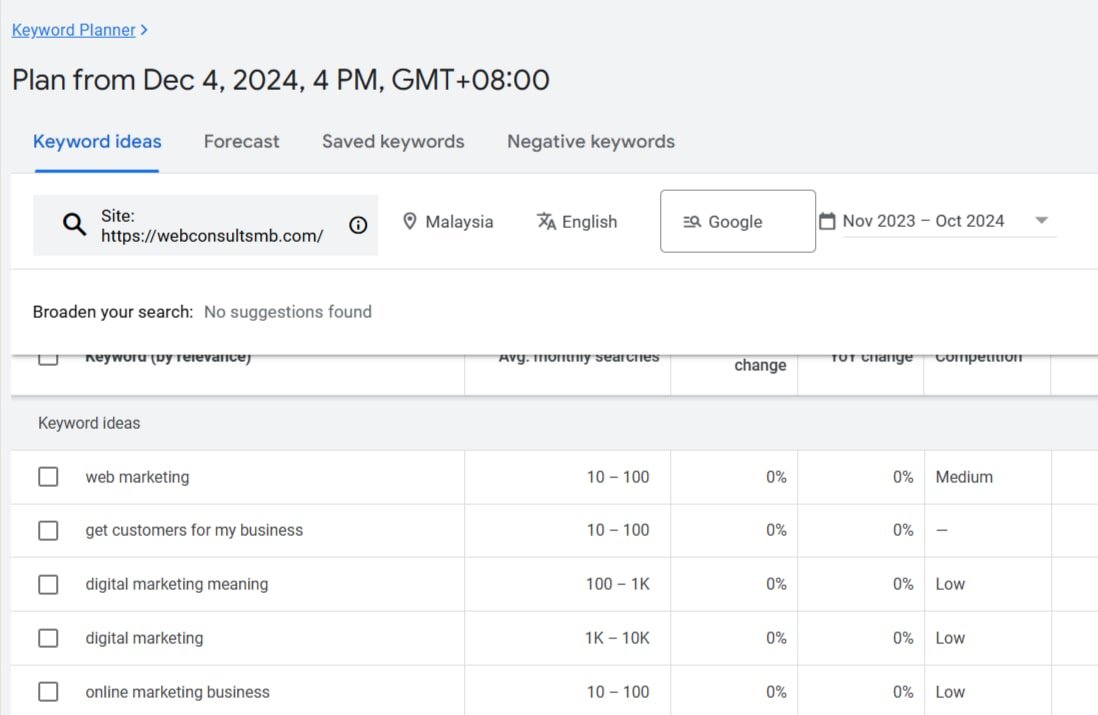
This information helps you find relevant keywords that have a lot of searches. It also lets you see how tough those keywords are to use.
2. Advanced Capabilities of SEMrush and Ahrefs
For people who want a close look at the market, SEMrush and Ahrefs are the best SEO tools. They have many strong features that support you.
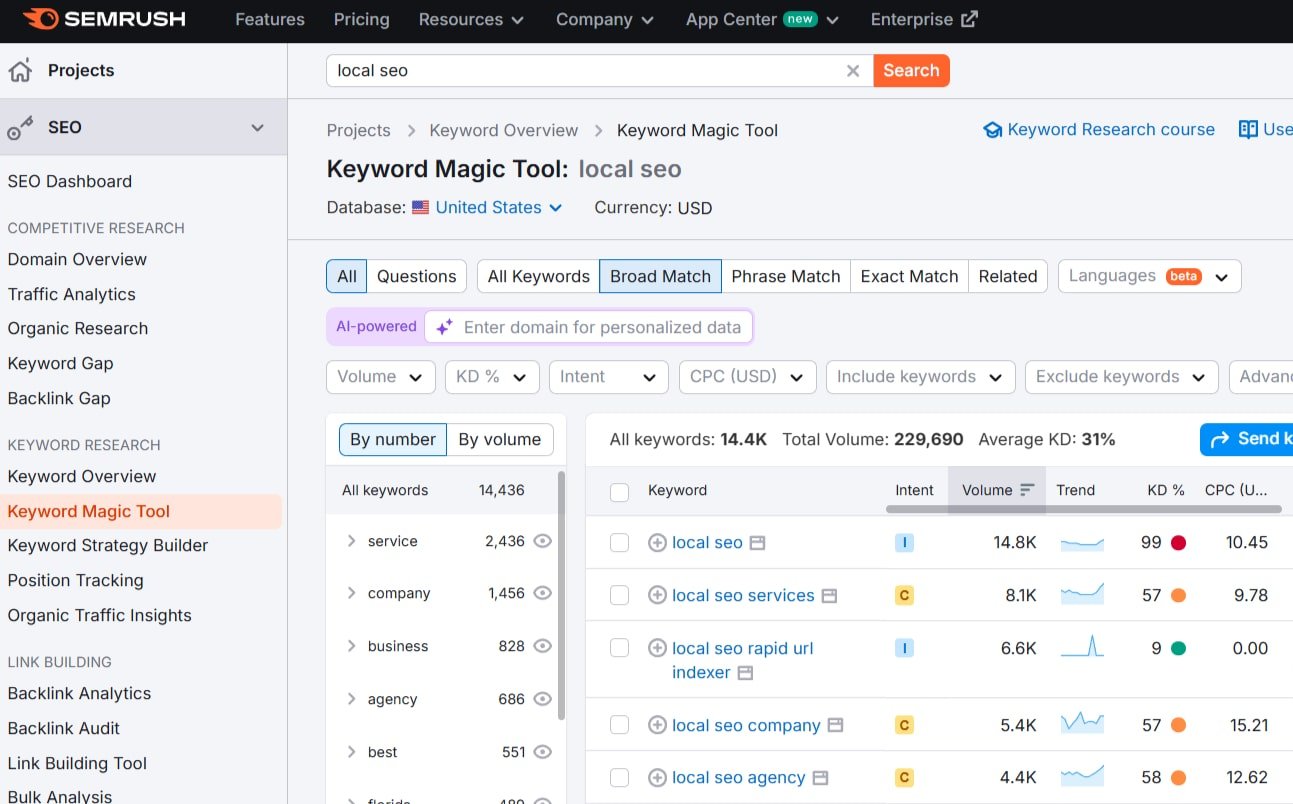
These tools provide keyword information and help with checking competitors, auditing sites, and tracking backlinks.
This way, you can see the complete picture of your SEO performance.
You can see which keywords work well for your competitors. This helps you find out where your content needs improvement.
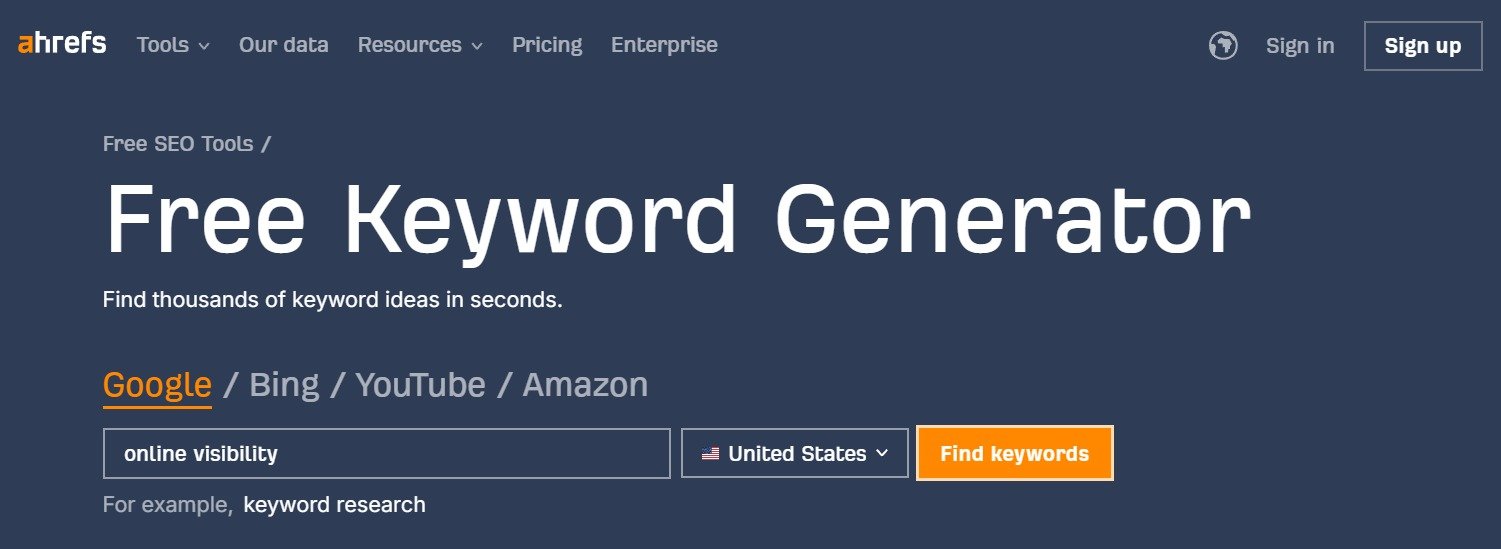
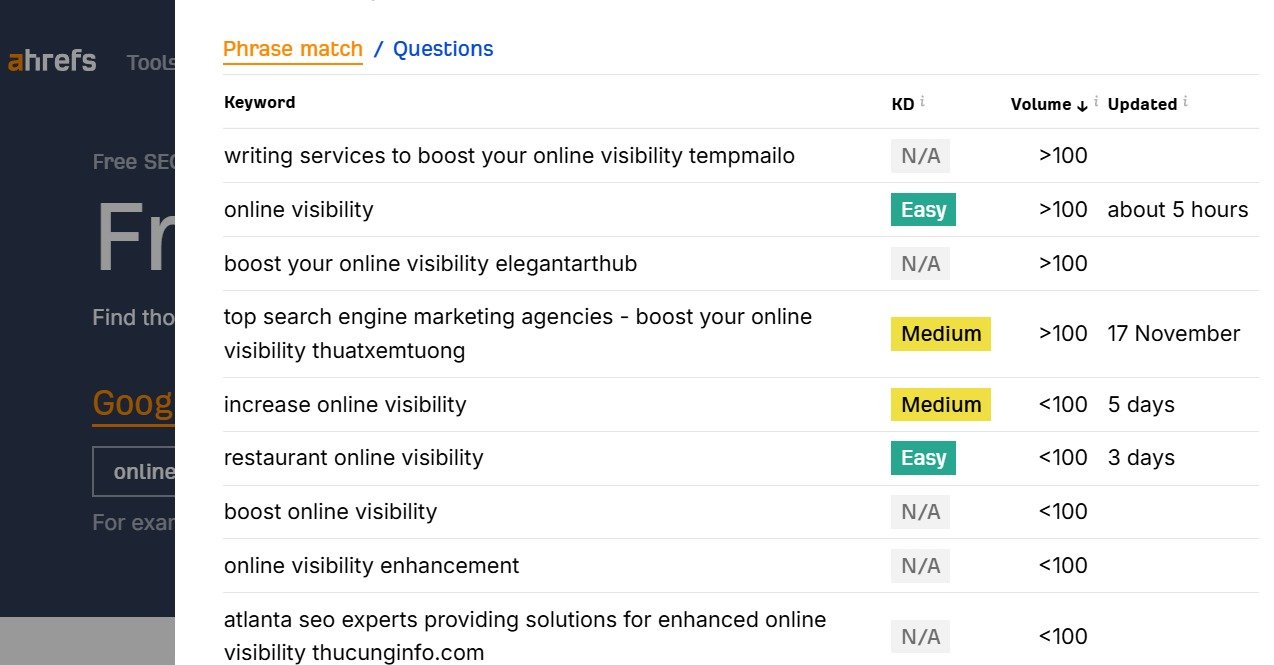
Tools like SEMrush and Ahrefs can help you make better choices. They can improve your content strategy and keep you ahead in the game.
Method 2: Analyzing Competitors’ Websites
Keep your friends close and your competitors even closer. It’s true, isn’t it?
Checking out your competitors’ websites can spark many ideas about key words. When you look at what they are doing, you can discover ways to improve.
This can help you connect with more of your target audience.
1. Identifying Competitor Keyword Strategies
Think of competitor analysis as a tool to learn more about your target audience. When you look at your competitors’ website content, you can discover much about their SEO strategy.
Notice the types of keywords they use, the keywords they want to rank for, and how they organize their content.
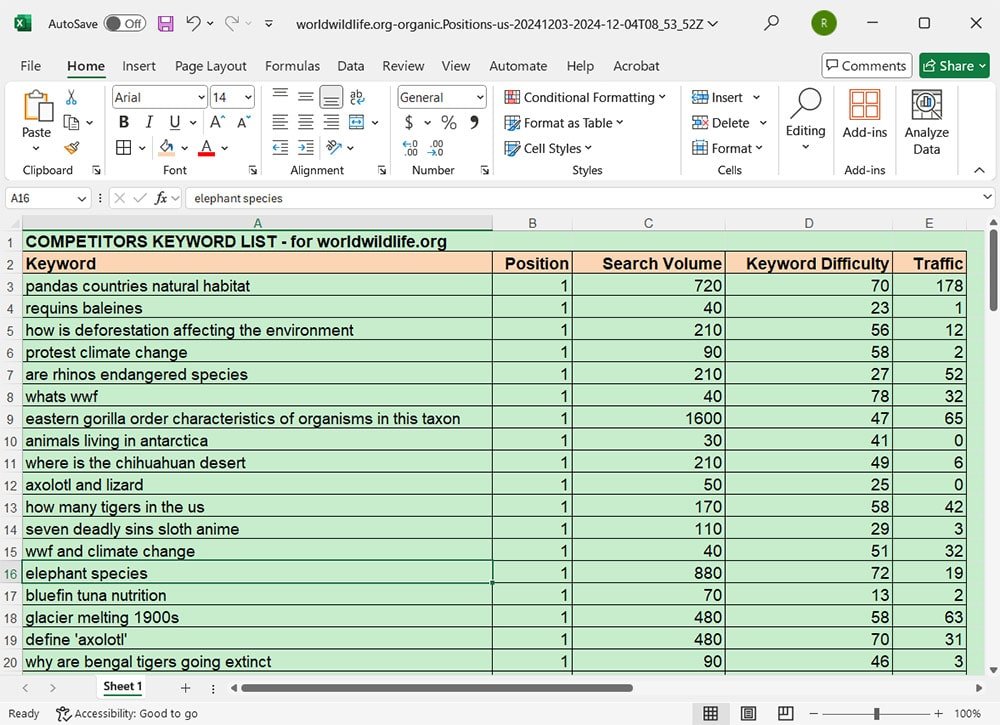
Making a keyword list is an important part of this process. You should write down the keywords that appear often on their top-ranking pages, including your list of keywords.
Pay attention to keywords in page titles, headings, and meta descriptions. This practice can give you useful insights about the keywords they want to target and the ones they rank well for.
2. Tools for Competitor Keyword Analysis
There are many SEO tools, including SE Ranking, that can make your competitive analysis easier. These tools help you find valuable keywords that your competitors use.
SEMrush, Ahrefs, and Moz are all great options. They have strong features to break down the keyword strategies of your competitors.
|
Tool |
Features |
|
SEMrush |
Domain Overview, Organic Research, Keyword Gap Analysis |
|
Ahrefs |
Site Explorer, Keywords Explorer, Content Gap |
|
Link Explorer, Keyword Explorer |
These tools help you see how your competitors are ranked online. You can check their estimated organic traffic and the keywords they use. By looking at this information, you can find areas where your content strategy may be lacking.
You can also improve your website by focusing on the right keywords. This way, you can better connect with your target audience.
Method 3: Exploiting Google Analytics and Search Console Data
Don’t overlook the power of the tools you have at hand!
Google Analytics and Google Search Console are packed with helpful information for you to explore.
These tools provide key details about how users engage with your website. They reveal the keywords people use to find you.
1. Finding Organic Search Keywords
Google Search Console includes a part named “Performance,” and a tab for “Queries.” This is the ideal spot to discover which organic keywords attract visitors to your website.
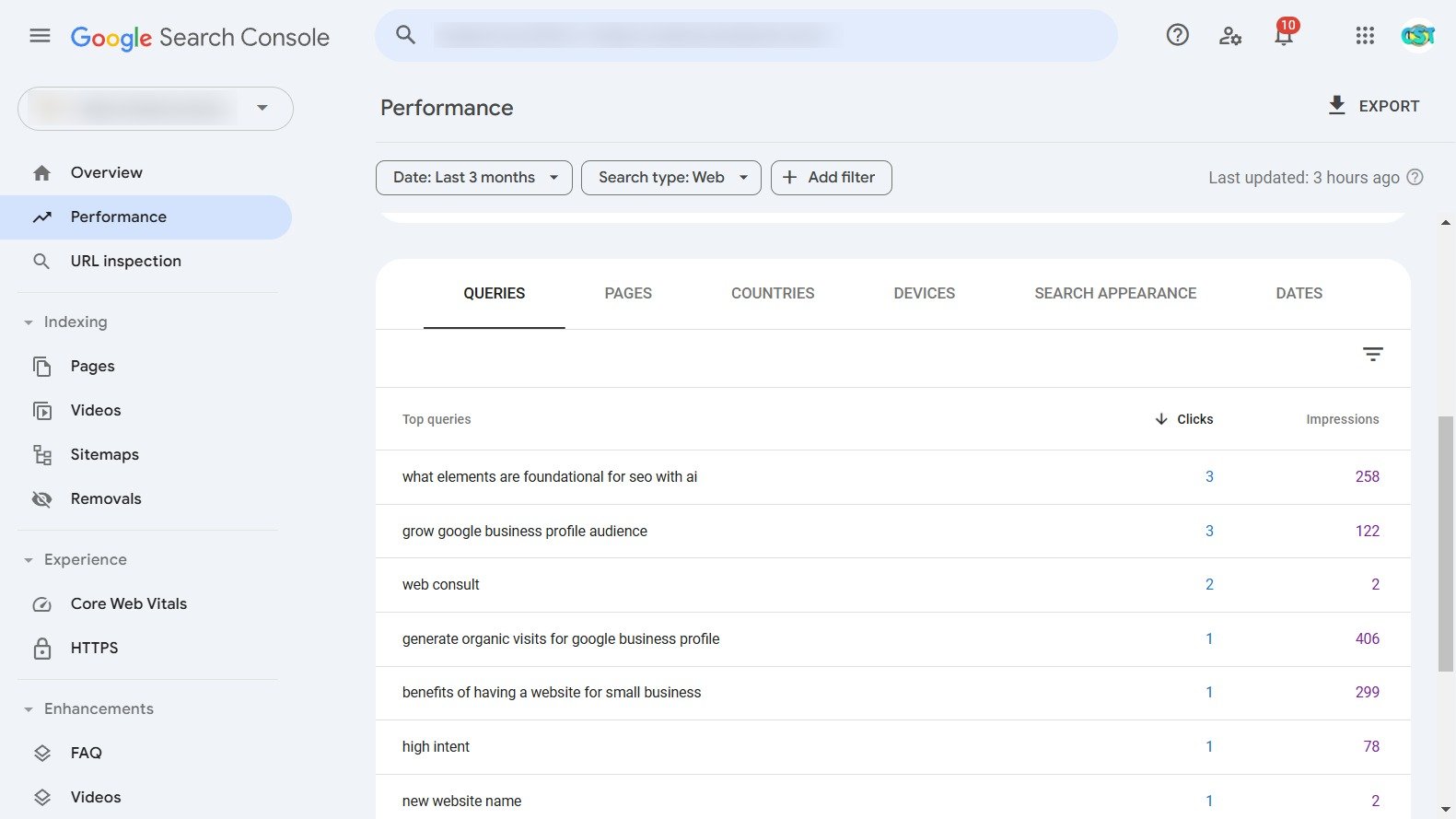
This report displays the search terms people entered into Google before they clicked on your site in the search results.
When you check this data, you can see how your website is performing with keywords. You can identify the keywords that work well and bring in organic traffic.
Then, you should create more content about these topics.
2. Analyzing User Queries to Optimize Content
Google Analytics and Search Console do more than locate your organic keywords. They also display the questions users enter in your site’s search bar.
This data helps you understand what users are trying to find on your site. It is really useful for improving your content.
When you check these search engine optimization insights, you can find areas where your content is lacking, especially for mobile devices.
You can also see how to make your website easier to navigate. This helps you create content that fits your audience’s needs.
Remember, satisfied users are more likely to come back, engage with your content, and become customers.
Method 4: Using Social Media for Keyword Inspirations
Social media is not only for connecting with friends anymore. Now, these platforms are full of discussions and information sharing.
They offer a wealth of keyword ideas for smart marketers.
1. Monitoring Trending Topics on Twitter and LinkedIn
- Twitter and LinkedIn are good places to see what is trending.
- They can help you discover new keywords in your industry.
- Check out hashtags, popular talks, and important people in your area.
- This will help you understand the latest trends and discussions.
Use these tips from social media in your content strategy. This will help your content stay relevant and connect with your target audience. By doing this, you can join important talks that may improve your brand’s visibility and engagement.
2. Engaging with Audience Queries and Discussions
Social media is not just for sharing your message. It’s also for listening and talking with your audience.
You need to pay attention to comments, direct messages, and mentions. This helps you understand their questions and problems related to your area.
When you take part in these talks and answer questions, you share your knowledge. This helps build trust and gives you useful insights about their needs.
Engaging with the audience creates a community and brings you many keyword ideas. You can use these ideas to better your user experience and content strategy.
Method 5: Exploring Forums and Q&A Platforms
Want to understand your target audience better? Look at online forums and Q&A platforms! These places are filled with content created by users.
You can find lots of questions, discussions, and ideas that will help with your keyword research.
1. Extracting Keyword Ideas from Reddit and Quora
Reddit and Quora are good places to begin if you want to learn about specific topics in your field. You can find talks and questions related to your area.
Pay attention to how users share their thoughts.
These sites show what your audience thinks, what they ask, and what issues they have.
If you look closely at these forums, especially on Reddit and Quora, you can find longer keywords. You can learn about user intent and discover important keywords that you might overlook with regular keyword research methods.
2. Leveraging Niche Forums for Untapped Keywords
- Look for niche forums that cover certain industries, interests, or communities.
- These unique platforms can help you find specific and less popular unused keywords.
- This can help you a lot.
By joining online groups and sharing helpful content, you can show that you are an expert in your field. This can attract a keen audience. This approach includes ideas from keyword research.
It helps your brand be more visible and brings more people to your website.
Method 6: Employing Internal Site Search Data
Your website has a lot of useful data! By reviewing the internal site search data, you can discover what information users are looking for but can’t seem to find on your site.
1. Analyzing User Search Queries on Your Site
Most website analytics tools provide data about the search terms people use on your site.
Many CMS platforms like WordPress, Wix, or Shopify include plugins or built-in analytics for on-site search. Tools like ElasticSearch and Algolia offer detailed insights into internal search queries.
You should look at these terms to form topic clusters.
This will help you understand what words users choose when seeking information. Are there any common themes, questions, or specific words that pop up?
Knowing how people use your site and what they need can help you see where you might be missing content. It helps you make it easier for users to navigate your site.
This way, your content can fit better with what users are looking for.
2. Optimizing Content Based on Internal Search Insights
The data from your internal site search can be very useful for your content strategy. Check for pages that have many searches but low conversions.
This can show you areas where you can improve.
Think about creating new content that answers the keywords and questions you discovered. When you align your content with what your audience wants, you can make their experience better and achieve better results.
This keeps people on your site longer and helps increase conversions. A direct approach that focuses on user intent is a smart way to improve your content and reach SEO success.
What are the best methods for effectively searching through content on a webpage for SEO?
In conclusion, knowing how to find related keywords is important for improving your website’s visibility and attracting more visitors. You can mix several tools for keyword research.
Look at your competitors’ actions.
Check Google Analytics, observe trends on social media, visit forums, and study your internal site search data. This practice will help you discover important keywords for your SEO strategy.
These methods let you find relevant keywords and understand user intent and interests. By using these strategies to cover related keywords, you can create focused and interesting content that connects with your audience.
This will help your website rank better on search engines, bringing in more organic traffic. Keep doing keyword research to stay ahead in the digital world.
Frequently Asked Questions
What are the best tools for keyword research on competitors' sites?
Many free SEO tools can help you do detailed keyword research on your competitors’ websites. Some of the best choices are SEMrush, Ahrefs, and Moz.
Each of these tools lets you look at website content and discover important keywords.
Can social media trends provide reliable keyword ideas?
Monitoring social media trends can give you good keyword ideas. When you look at trendy hashtags, popular talks, and words that people use, you find out what your target audience cares about.
This helps you create a better content strategy. It can also lead to improved search engine results.
What is the advantage of using forums for keyword research?
Forums are a good place to find content created by users. They use everyday language and show what users are interested in. When you read discussions and questions in your field, you spot great chances for keyword research.
This information can improve your SEO strategy. It will help you create quality content that truly resonates with your target audience.
How does internal site search data improve keyword discovery?
Analyzing the data from your site search can show you what users want on your website. This helps you understand their search intent.
When you know what they are looking for, you can improve your keyword choices and boost your website ranking. This change will help you tailor your content to fit user needs and reach your SEO goals.
How do I search for keywords in content?
Searching for keywords in content involves identifying relevant terms and phrases that your target audience is likely to use. Using tools like Google Keyword Planner or SEMrush can help identify popular search terms.
Competitor analysis can also help identify keywords driving traffic to similar websites.
Why search for keywords on a website?
Searching for keywords on a website is crucial for optimizing the content to attract organic traffic. By incorporating relevant keywords that align with what users are searching for, you can improve your website’s visibility in search engine results.
This targeted approach helps drive qualified traffic to your site, increasing the likelihood of conversions and achieving your SEO goals effectively.
